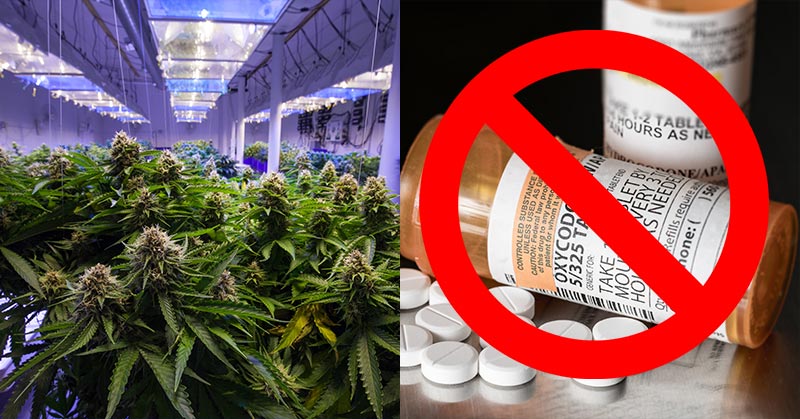According to the U.S. Department of Health and Human Services, more than 130 people die every day from an opioid-related drug overdose. The situation has gotten so bad that they have declared it a public health emergency [1].
The opioid crisis has been receiving increasing amounts of attention by our governments, news outlets, and health professionals, with everyone asking the same question: how can we stop this epidemic?
Researchers in Vancouver, Canada may have found an unlikely solution: marijuana. In a study published in November, researchers in Vancouver’s downtown eastside found that participants who used cannabis every day to manage their chronic pain were almost fifty percent less likely to use illicit opioids on a daily basis [2].
Cannabis and Pain Management
Cannabis has been used for thousands of years as a remedy in traditional medicine. Due to legal issues, it is used much less frequently today in clinical settings [3].
Despite its illegal status in many regions of the world, cannabis has been shown to be moderately effective at reducing chronic pain [3].
There is also a growing amount of anecdotal evidence that suggests that marijuana is an effective pain-reliever. Cancer and AIDS patients, people who suffer from migraines, and people with spastic and movement disorders have all described how their use has helped ease their painful symptoms [4].
How Does Cannabis Relieve Pain?
The answer to this question comes down to how our brain perceives pain. You have receptor cells all over your body that are activated by temperature, touch, movement, or chemical changes in the cell’s environment. When they are activated, they send a nerve signal that your brain interprets as pain [4].
Researchers are still working to determine exactly how marijuana helps to relieve pain, but they do have at least one theory:
The nerves in your body that detect pain also contain a large number of receptors for cannabinoids. In basic studies, it appears that cannabinoids block nerve pain. Because of ethical and logistical issues with conducting pain experiments on humans, the evidence to support this theory is not yet conclusive [4].
The Study
This new study combines data from 2014 to 2017 as part of two long-term studies of people who use drugs on the eastside of downtown Vancouver. One of the studies has been running since the mid-nineties, the other since the mid-2000s [2].
During the studies, researchers interviewed participants about their lifestyle, pain, drug use, and health among other factors. They also took blood samples. Most of the people in the study were either homeless or marginally-housed at best – a population with a much higher rate of drug use [2].
The author of the study, M-J Milloy explained that chronic pain was one of the biggest factors associated with opioid overdose risk. Since these people live a marginalized existence on the fringes of society, they have more difficulty accessing legal pain remedies. This makes them more likely to turn to illicit drugs to manage their pain [2].
The Findings
These findings are contributing to a growing hypothesis in the world of biomedical science that cannabis may have what’s called an “opioid-sparing effect” [2].
Researchers made a similar conclusion in 2014 when they noticed that in states where there were medical cannabis laws, there was a significantly lower number of deaths caused by opioid overdose [5].
Again, another 2016 study that included 274 participants found that marijuana use resulted in decreased pain, improved functionality and a significant reduction in opioid use [6].
What’s Next?
Conducting these types of studies can be tricky. Due to the nature of the population researchers are studying, it is difficult to control for outside factors. There are also many legal and ethical issues surrounding pain tests on humans, which makes it hard to understand how or why cannabis relieves pain.
In order to determine whether cannabis could be a possible solution to the growing opioid crisis, most researchers in the biomedical community agree that more work needs to be done.
Milloy says that the next step is to conduct trials in a controlled setting. This research has already received funding and plans to start recruiting participants next year [2].
References
- https://www.hhs.gov/opioids/about-the-epidemic/index.html
- https://www.popsci.com/story/health/cannabis-chronic-pain-opioids/
- https://academic.oup.com/painmedicine/article/10/8/1353/1857926
- https://www.ncbi.nlm.nih.gov/books/NBK224384/
- https://jamanetwork.com/journals/jamainternalmedicine/fullarticle/1898878
- https://www.ingentaconnect.com/content/wk/cjpn/2016/00000032/00000012/art00003

